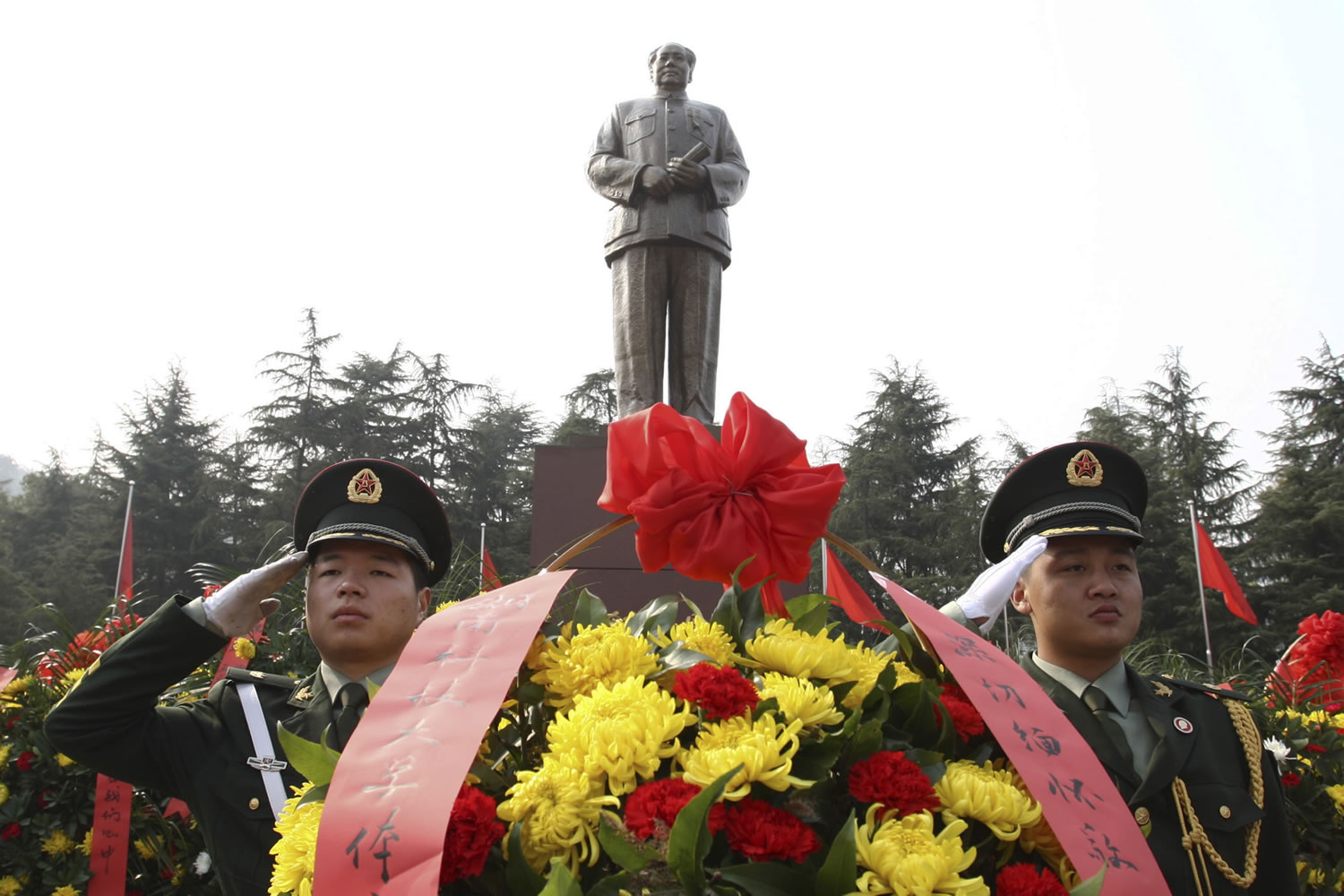BEIJING — China’s leaders bowed three times before a statue of Mao Zedong on the 120th anniversary of his birth Thursday in carefully controlled celebrations that also sought to uphold the market-style reforms he would have opposed.
The approach underscores the delicate balancing act the Communist Party leadership — installed last year — has to perform in managing perceptions of Mao’s legacy.
As heirs of the authoritarian one-party political system imposed by Mao and his party comrades, the current leadership has a strong interest in venerating his memory to bolster their own legitimacy.
But they have also pledged to undertake market reforms needed to rejuvenate a slowing economy, measures that would have been anathema to Mao.
President and Communist Party chief Xi Jinping and other top leaders paid tribute to the founder of the communist state with a visit to his mausoleum on Tiananmen Square in the heart of the capital, Beijing, the official Xinhua News Agency said.
The leaders “revered” Mao’s embalmed body which lies in state in the mausoleum and “jointly recalled the glorious achievements of comrade Mao Zedong,” Xinhua reported.
In a sign of the relatively understated approach the party is taking with the anniversary, there was no mention of Mao’s birthday on the front page of the party’s flagship People’s Daily.
On page seven the paper hailed Mao as a brilliant “proletarian revolutionary, strategist and theorist,” but the full-page commentary was accompanied by an editorial that said the “best commemoration” of Mao would be to keep advancing economic reforms that were launched by his successor.
Under Mao’s leadership, China lurched between industrialization drives and violent political campaigns that left tens of millions dead before he died in 1976 and his successors began their free market experiments. Mao played a central role in China’s worst post-war tragedies: the Great Leap Forward and Cultural Revolution, in which millions died from starvation and persecution.
Censors appeared to be busy scrubbing criticism of Mao off China’s social media sites.



